Gardener in Manor House: Transform Your Estate's Green Spaces
Introduction to Manor House Gardening
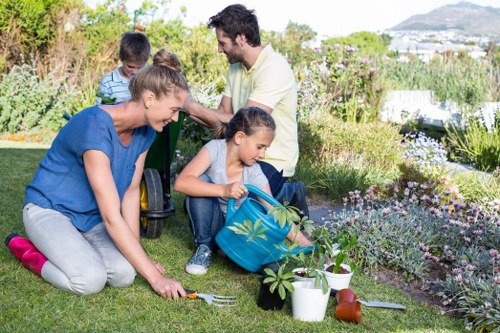
Maintaining the lush and expansive gardens of a manor house requires expertise, dedication, and a deep understanding of horticulture. A gardener in Manor House not only tends to the plants but also preserves the historical and aesthetic value of these grand estates.
From meticulously trimmed hedges to vibrant flowerbeds, every element of the garden contributes to the overall beauty and functionality of the manor. The role of a gardener here goes beyond basic upkeep; it involves creative landscaping, seasonal planning, and sustainable gardening practices.
In this article, we will explore the various aspects of being a gardener in Manor House, the essential skills required, and the benefits of professional gardening services for such prestigious properties.
Roles and Responsibilities
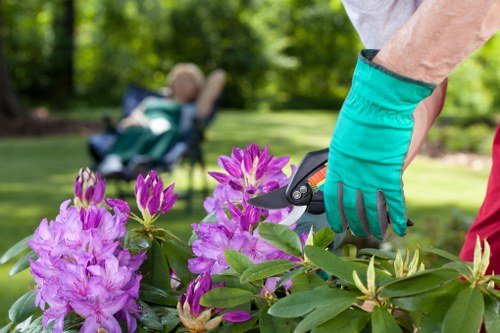
A gardener in Manor House has a multifaceted role that ensures the gardens remain pristine and inviting throughout the year. Key responsibilities include:
- Plant Care: Regular maintenance of flowers, shrubs, and trees to promote healthy growth and vibrant blooms.
- Landscape Design: Designing and implementing garden layouts that complement the manor's architecture and surroundings.
- Irrigation Management: Ensuring efficient water use through well-planned irrigation systems.
- Pest Control: Managing pests organically to protect plant health without harming the environment.
- Seasonal Planting: Planning and executing planting schedules to ensure year-round beauty.
Each of these tasks requires a blend of practical skills and creative vision, making the role both challenging and rewarding.
Moreover, a gardener must collaborate with estate managers, landscapers, and sometimes event planners to ensure that the gardens meet the specific needs of the manor house.
The Importance of Professional Gardening Services
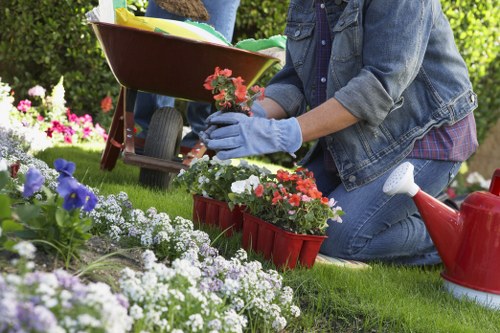
Engaging a professional gardener in Manor House offers numerous advantages. Expertise in managing large-scale gardens ensures that every corner of the estate is well-tended and aesthetically pleasing.
Professional gardeners bring knowledge of plant species, soil health, and sustainable practices that are crucial for maintaining the estate's garden. Their experience allows them to anticipate and mitigate potential issues before they escalate.
Additionally, they can provide tailored services such as custom garden designs, restoration of historical gardens, and implementation of eco-friendly gardening techniques. This level of service goes beyond standard gardening, adding significant value to the property.
Essential Skills for Manor House Gardeners
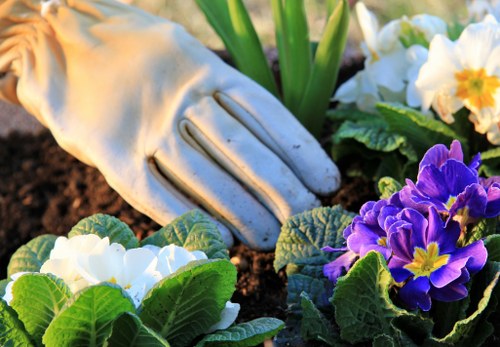
To excel as a gardener in manor houses, several key skills are essential:
- Horticultural Knowledge: Understanding plant biology, soil science, and climate requirements.
- Landscape Design: Ability to create harmonious and functional garden layouts.
- Attention to Detail: Ensuring every plant, path, and feature is meticulously maintained.
- Physical Stamina: Handling the physical demands of large gardens.
- Problem-Solving: Addressing challenges such as pest infestations or plant diseases effectively.
These skills ensure that the gardener can maintain the high standards expected in such prestigious environments.
Continuous learning and staying updated with the latest gardening techniques and trends also contribute to the gardener's success.
Tools and Equipment
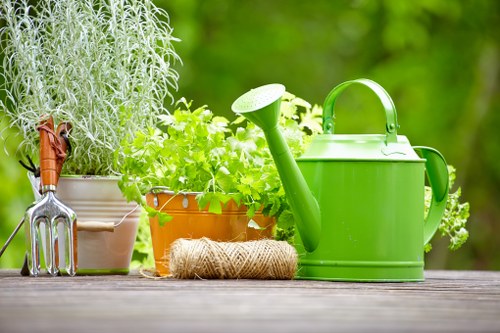
A gardener in Manor House utilizes a wide range of tools and equipment to perform their duties efficiently:
- Pruning Tools: For shaping and maintaining plants.
- Lawn Mowers: Essential for maintaining large grassy areas.
- Irrigation Systems: Automated systems to ensure consistent watering.
- Soil Testing Kits: To monitor and manage soil health.
- Gardening Vehicles: Such as tractors for transporting tools and materials across the estate.
Investing in high-quality tools ensures that the gardener can maintain the estate's gardens to the highest standards.
Proper maintenance of these tools is also crucial to ensure their longevity and effectiveness.
Sustainable Gardening Practices
In today's world, sustainability is a key consideration in gardening. A gardener in Manor House incorporates eco-friendly practices to preserve the environment and promote biodiversity.
These practices include:
- Composting: Recycling garden waste to create nutrient-rich soil.
- Rainwater Harvesting: Collecting and using rainwater for irrigation.
- Organic Pest Control: Using natural methods to manage pests without harmful chemicals.
- Diverse Plant Selection: Planting a variety of species to support local wildlife and prevent disease outbreaks.
- Energy-Efficient Equipment: Utilizing tools and machinery that reduce energy consumption.
These strategies not only enhance the garden's beauty but also contribute to a healthier ecosystem.
Adopting sustainable practices ensures that the manor's gardens remain vibrant and resilient for generations to come.
Seasonal Gardening Strategies
Managing a manor's gardens requires careful planning throughout the seasons. A skilled gardener adapts their strategies to ensure year-round beauty and functionality.
Spring: Focus on planting new blooms, pruning overgrown plants, and preparing the soil for the growing season.
Summer: Maintain vibrant flowerbeds, manage irrigation, and control pests to keep the garden thriving.
Autumn: Clean up fallen leaves, plant bulbs for spring, and prepare plants for the colder months.
Winter: Protect sensitive plants, plan for the next year's garden, and perform any necessary maintenance on tools and equipment.
This seasonal approach ensures that the manor's gardens remain beautiful and healthy throughout the year.
Each season presents unique challenges and opportunities for gardeners to showcase their expertise.
Local Expertise and Community Engagement
Being a local gardener in Manor House means understanding the specific climate, soil conditions, and plant varieties that thrive in the area. This local expertise is invaluable in creating and maintaining gardens that are both beautiful and sustainable.
Furthermore, engaging with the local community can lead to collaborations, knowledge sharing, and support for community-driven green initiatives. It fosters a sense of belonging and contributes to the overall well-being of the area.
By building strong relationships with local suppliers, nurseries, and other gardeners, a professional gardener can ensure access to quality resources and stay updated with regional gardening trends.
Community engagement also opens opportunities for educational workshops, garden tours, and other events that highlight the importance of well-maintained gardens in enhancing the quality of life.
Choosing the Right Gardener for Your Manor House
Selecting a professional gardener for your manor requires careful consideration. Here are some tips to ensure you make the best choice:
- Experience: Look for gardeners with a proven track record in managing large estates and historical gardens.
- References: Seek recommendations from other manor house owners or estate managers.
- Portfolio: Review their previous work to assess their design and maintenance skills.
- Certifications: Ensure they have relevant horticultural qualifications and training.
- Communication: Choose someone who listens to your vision and can communicate effectively.
Investing time in selecting the right gardener ensures the long-term success and beauty of your manor's gardens.
A good gardener will not only meet your expectations but also bring creative ideas to enhance your estate's outdoor spaces.
Maintaining Historical Gardens
Historical gardens at manor houses require special care to preserve their unique character and heritage. A seasoned gardener understands the importance of maintaining traditional planting schemes, period-appropriate garden structures, and historical landscaping elements.This involves meticulous maintenance, restoration of aged features, and ensuring that any new additions blend seamlessly with the existing design. Preservation of historical gardens adds value to the manor and provides a tangible connection to its past.
Attention to detail is paramount, as even minor changes can significantly impact the garden's historical integrity.
By respecting and preserving the history embedded in the garden's design, a gardener helps maintain the manor's legacy for future generations.
Innovative Landscaping Techniques
Modern landscaping introduces innovative techniques that can enhance the functionality and beauty of manor house gardens. Integrating elements such as water features, outdoor lighting, and modern garden structures can add a contemporary touch while maintaining the estate's elegance.
Using technology in landscaping, like smart irrigation systems and automated maintenance tools, can improve efficiency and sustainability. Additionally, incorporating native plants and sustainable materials aligns with eco-friendly gardening practices.
Innovative landscaping not only refreshes the garden's appearance but also improves its resilience against environmental challenges.
By blending traditional and modern techniques, a gardener can create a dynamic and inviting outdoor space that meets the evolving needs of manor house residents.
Embracing innovation ensures that the gardens remain relevant and continue to impress visitors and residents alike.
Enhancing Curb Appeal
The gardens play a significant role in the overall curb appeal of a manor house. A well-maintained garden creates a welcoming atmosphere and sets the tone for the estate's grandeur.
Elements such as symmetrical layouts, vibrant plantings, and strategically placed lighting contribute to an impressive exterior. Maintaining pathways, driveways, and entrance areas ensures that visitors receive a positive first impression.
Additionally, seasonal displays and decorative elements like statues or fountains can enhance the visual appeal and make the manor stand out in the neighborhood.
Investing in high-quality garden maintenance not only increases the property's aesthetic value but can also boost its market value.
Seasonal Challenges and Solutions
Managing a manor house garden involves navigating various seasonal challenges. Each season brings its own set of tasks and potential obstacles that require specific solutions.
Spring: Addressing soil preparation and early plant growth challenges by enriching the soil with compost and ensuring adequate watering.
Summer: Combating heat stress and water scarcity by implementing efficient irrigation systems and mulching to retain moisture.
Autumn: Managing fallen leaves and preparing plants for dormancy by pruning and protective measures.
Winter: Preventing frost damage and ensuring plant survival through appropriate coverings and sheltering techniques.
By anticipating these challenges, a professional gardener can maintain the garden's health and beauty throughout the year.
Proactive management and timely interventions are key to overcoming seasonal obstacles effectively.
Cost-Effective Gardening Solutions
Maintaining a manor house garden can be a significant investment. However, there are cost-effective solutions that do not compromise on quality:
- Efficient Water Use: Implementing drip irrigation and rainwater harvesting to reduce water consumption.
- Organic Fertilizers: Using compost and natural fertilizers to enhance soil health economically.
- Native Plants: Planting species that are well-suited to the local climate reduces maintenance costs.
- Regular Maintenance: Preventative care minimizes the need for expensive repairs and replacements.
- Energy-Efficient Tools: Investing in durable and energy-efficient gardening equipment saves money in the long run.
These strategies ensure that the manor's gardens remain beautiful and sustainable without unnecessary expenses.
Smart budgeting and resource management contribute to the long-term viability of maintaining large estate gardens.
Future Trends in Manor House Gardening
The field of gardening is continually evolving, and future trends promise to bring exciting developments to manor house gardens:
- Smart Gardens: Integration of IoT devices for automated monitoring and maintenance.
- Vertical Gardening: Maximizing space through innovative plant arrangements.
- Edible Landscaping: Incorporating food-producing plants into decorative gardens.
- Healing Gardens: Designing spaces that promote mental and physical well-being.
- Climate-Resilient Plants: Selecting species that can withstand changing climate conditions.
Staying abreast of these trends ensures that manor house gardens remain modern, functional, and aesthetically pleasing.
Embracing new ideas and technologies can enhance the garden experience for residents and visitors alike.
Conclusion
A professional gardener in Manor House plays a crucial role in maintaining and enhancing the estate's gardens. Their expertise ensures that the gardens remain beautiful, sustainable, and reflective of the manor's grandeur.
From seasonal maintenance to innovative landscaping, the services provided by a skilled gardener add significant value to the property and the lives of its residents.
Investing in professional gardening services is a commitment to preserving the legacy and beauty of your manor house for generations to come.
Contact us today to transform your manor house gardens into stunning landscapes that captivate and inspire.